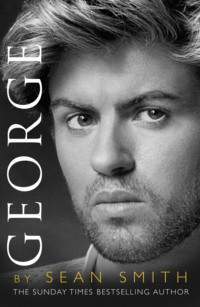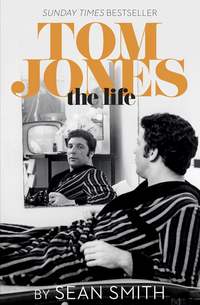
Полная версия
Spice Girls: The Story of the World’s Greatest Girl Band
Even though Walter de Merton had become Beechfield School, it still retained a strong link with its famous former pupil and one of the houses is called Halliwell House.
Before she left junior school, Geri went to her first concert when she joined Natalie to see Wham! on the Big Tour at the NEC, Birmingham, in December 1984. George Michael was performing the number-one single ‘Freedom’ and when he got to the last line, he pointed at Geri and sang, ‘Girl, all I want right now is you.’ She fell in love and decided on the spot that they were going to get married. Every night she would give a poster of him on her bedroom wall a goodnight kiss before getting into bed. Many of her classmates fancied Andrew Ridgeley and would gather outside his parents’ house a couple of miles away in Bushey but Geri’s heart always belonged to George.
Her devotion to George also coincided with her discovery of Madonna, whose flamboyant image would be a considerable influence on her. Even as a young teenager she could identify with the artist who had become the most famous woman in pop, even though she was by no means the best singer or dancer. Instead she had a fantastic image.
After Walter de Merton, Geri was expected to follow her brother and sister to the nearby Leggatts Way Secondary Modern but she had other ideas. She asked her mum if she could try for a place at Watford Grammar School for Girls and surprised everyone by being accepted. It was an early indication that Geraldine Halliwell was someone who could make things happen.
The one drawback was that she lost touch with most of her primary-school classmates, but Geri’s lack of shyness ensured she made friends easily. The new school also gave her the opportunity to discover drama. Growing up, there had been no money for dance classes or music lessons so the highlight of her performance career to date was pretending to be Sandy from Grease and singing ‘Summer Nights’ in assembly at junior school.
Now, she was being encouraged to appreciate Shakespeare, and a trip to watch A Midsummer Night’s Dream at the Open Air Theatre in Regent’s Park was one of the highlights of her time at Watford Grammar. The school was one of the best in the area: founded in 1704 as a charity school, it had an excellent academic reputation.
Geri passed an impressive eight GCSEs, without particularly applying herself. She had no desire to continue a formal education by going on to study for A-levels, Instead she decided to follow her sister Natalie and go to the local Casio College in Langley Road, Watford, which Andrew Ridgeley had attended a few years before. If she had been a bit older Geri might have seen him and George Michael perform there with their original band, the Executive.
Geri studied a curious mixture of finance, travel and tourism, which didn’t suit her. She decided that she was just wasting precious time, promptly left and started dancing. She had no proper training so would just improvise and hope for the best. She had developed a curvaceous figure and was soon noticed around the London clubs. She was paid £40 for dancing on a Saturday night – and Sunday morning – at the Crazy Club and the house-music extravaganzas held at the Astoria in Charing Cross Road.
Geri moved out of Jubilee Road, staying for a while in a terraced house owned by her half-sister Karen and her husband in the Watford suburb of South Oxhey. She had to leave after she had invited everyone in the Game Bird pub to a party at the house. Word got round: two hundred people turned up and wrecked the place. Shamefaced, Geri moved into a squat on a nearby council estate.
Newly independent, Geri had to buy her own food. This was not necessarily a good thing because she was worrying for the first time about her weight. As a result, she did something she later claimed was ‘the biggest mistake of my life’ – she went on a diet. The trigger had been a throwaway remark by one of her fellow dancers about her being a bit plump. She had been a fussy eater as a child – avoiding vegetables if she could – but at least then her mum, who could be quite strict, could keep an eye on her. Left to her own devices she wasn’t eating properly at all.
At least she was saving money. She much preferred to spend what little she had on going out. These were carefree times in the late eighties and Geri became an enthusiastic embracer of the ‘Second Summer of Love’. This was the acid-house culture that had sprung up during 1988 and ballooned into the giant illegal rave events around the M25. Watford was the perfect starting point for dressing up, piling into cars and vans and heading off to the next party location. The Game Bird in Hartspring Lane was close to the M1 and the best kicking-off point in the area – no wonder Geri’s party was mobbed.
Geri was sixteen when she went to her first rave and at seventeen was an old hand. But her cavalier outlook on life took a temporary knock when she discovered a small lump in her right breast and needed an emergency operation to have it removed. Fortunately, it was benign but Geri always felt she was one of the lucky ones and, in the future, would strongly encourage young women to be mindful of breast cancer and make sure they checked their breasts regularly.
She found out that she could earn more money abroad so decided to try her luck in the fashionable Mediterranean clubs. At nineteen, she was a dancer at the world-famous BCM Planet Dance club in Magaluf. ‘Dancing’ is a loose term because in effect she was writhing around in a cage ten feet or so above the dance floor. To begin with, she was given a week’s trial by the manager but soon proved to be one of the most popular dancers, dressed in a variety of wigs, bra tops and leather shorts. Geri, it seemed, had mastered the art of flirtation. As one of her close friends observed, ‘She was very good at making you feel special.’
Rather like Melanie Brown in Blackpool, Geri seemed to enjoy her freedom away from her home town and, by all accounts, had a wild few months in the Spanish sun. Kelly Smith, another of her friends from those days, recalled, ‘She was a party animal and didn’t mind showing herself off.’
Aside from dancing in a cage, Geri was doing little more than thousands of teenagers enjoying a month or two in the Spanish sun. It was a rite of passage but, despite the fun, she didn’t lose her focus or ambition.
During her time in Mallorca, she shared a flat with another dancer who had some topless pictures taken by a local photographer. Geri decided to do the same. She had visions of becoming a star in the very lucrative world of glamour modelling. Perhaps this would be her passport to the fame she so desperately wanted – she never tired of telling people she was going to achieve it. Kelly remarked, ‘We thought it was funny when she went on and on about becoming a big star.’
On her return to England, she signed up with what she called the ‘dodgiest agency you could imagine’ but secured one or two decent jobs, including a jeans advert. She also did a Page 3 session for the Sun but the shots weren’t used. Geri found the topless work boring. She told the chat show host Michael Parkinson, ‘I found it very dull – standing there with a window open to keep your nipples firm was not good.’ She had to navigate a dodgy world of casting agents who for no good reason would ask her to strip at auditions for non-nude parts. On these occasions she would make a rapid exit.
Another drawback was the constant scrutiny of her shape. Apparently a photographer made a casual remark about her weight and that was all it took for Geri once again to believe she was fat. Her sparky, fearless demeanour masked an all-too-familiar story of vulnerability.
She was already displaying a fearsome energy that never seemed to run out. She had been moved out of the squat by the council and needed to earn to pay the rent on her tiny flat in another unappetising part of town. She taught aerobics, waited tables, washed hair, and found time to do a day course in television presenting run by Reuters.
Her modelling shots led to her next opportunity, providing the glamour on a Turkish game show. It was called Sec Bakalim and was a version of the old US show Let’s Make a Deal. The producer apparently noticed Geri’s photographs and offered her a job that involved flying to Istanbul every weekend. He told her that she would not be wearing a swimsuit – or less – but a tasteful evening gown. She would also have to ‘love that fridge’. Geri, who was struggling to pay the rent, needed the money so she jumped at the chance to earn a couple of hundred pounds a show.
She wasn’t the presenter. She was the attractive young woman in a movie star dress, who smiled in front of the prizes that the contestants were trying to win. An unexpected bonus was that she was asked for her autograph for the very first time. She enjoyed the experience. Spending time in Istanbul was no hardship and she decided she would accept the role again if she was asked back.
She acquired new representation, Talking Heads in Barnes, run by broadcaster and voiceover maestro John Sachs and well-known agent Anthony Blackburn. They readily saw how appealing Geri was. She was still devouring the Stage every week and going to auditions. One was for a small part in a West End comedy. It didn’t go well but, significantly, the director asked her, ‘Geri, what’s the last thing you’ve read? I bet it was Cosmopolitan.’ And it was.
She resolved to catch up on her education and so, at the age of twenty, enrolled for an English-language course at Watford College in Hempstead Road. She had grown up a lot and, for the first time, felt she ‘understood the wealth and power of words’. She studied Hamlet, loved Sons and Lovers by D. H. Lawrence, and discovered the genius of Oscar Wilde.
She was in class when she received the message from her brother that their dad had died. She had just got back from a weekend in Istanbul where she was working on her second game-show season. She said, ‘I was distraught. I felt that he had been snatched away from me.’ She has talked openly about her grief and specifically being in denial that he had gone, even though she went to visit his body at the hospital.
Her description of seeing his body is heartbreaking: ‘He was lying there and all his nails were black – everything was black. His features were sunk. He looked like the Penguin in the film Batman II. It is a horrible memory of my father. It was hideous.’
She dragged herself into college and even joined everyone on a class trip to the West End to see Alan Cumming’s outstanding portrayal of Hamlet at the Donmar Warehouse. The actor would go on to become a familiar figure on British television through his starring roles in US series, including The Good Wife and Instinct. His 1993 Hamlet, however, was arguably the highlight of his career. Geri was enthralled and forgot her own tragedy for a precious hour or two.
After her father’s death, she suffered from bouts of both bulimia and anorexia. She was so down. ‘I wanted to kill myself. I could not function. It was awful.’ She started wearing black, not so much as a gesture of mourning but because she hoped it would make her look thinner. An unnamed family member remembered that Geri at this time would refer to herself as ‘Fatso’. She was getting by on cigarettes and black coffee.
Even her agents noticed how thin she was, although both John and Anthony thought it was because she couldn’t afford to eat properly, rather than anything more serious. They would try to encourage her to have a sandwich when she came to the office.
Outwardly, Geri appeared her normal bubbly self. She continued to go for auditions that she thought might suit her. She went to one to appear in a backing video for Pink Floyd. At another, she met one of the wannabes who would become a Spice Girl. She joined Victoria at a movie call for Tank Girl, loosely based on the comic strip. Once again it was an advertisement in the Stage proclaiming that they were looking for ‘the star of this futuristic action feature film’. The role had already been earmarked for the established actress Lori Petty, who had starred with Madonna in A League of Their Own, so this was little more than a crude publicity exercise for the movie.
Needless to say neither Geri nor Victoria was cast, which was a lucky break as the film ‘tanked’, only earning a quarter of its $25 million production costs. For her part Geri decided not to go back for another season to Turkey – and also called time on any future topless modelling. Her Page 3 ambitions were at an end.
The problem she faced moving forward was: what could she actually do? She might not have been drinking in the Last Chance saloon but she was certainly in the bar next door. Perhaps this pop group might be something.
5
Melanie Chisholm Superstar
The best-laid plans for the call-back were slightly disrupted when Chris was told one of the shortlist couldn’t make it. Joan O’Neill had rung from her Merseyside home to tell him that her daughter Melanie Chisholm had tonsillitis. Melanie obviously couldn’t speak to him herself because she was under strict orders to rest her voice. Chris had been impressed by her vitality at the first audition and was able to reassure Joan that her daughter was not going to lose this opportunity.
Melanie Chisholm lived and breathed dancing. Growing up, it was her pastime and her passion and she was brilliant at it. But, secretly, she wanted to be a singer like her mum.
Joan was already making a name for herself around the pubs and working men’s clubs of Merseyside before her eldest daughter was born. At the end of the sixties, she had joined a band called Petticoat and Vine, which is best described as a folk-rock group in the tradition of the Mamas and the Papas. She was then going by her maiden name of Joan Tuffley – although in those days she was billed professionally as Kathy Ford.
Norman Smeddles, the guitarist and leader of the group, decided they should have two female lead singers. His girlfriend and future wife, Val, was one and Joan became the other. They were blonde, pretty, and excellent singers. Norman recalled, ‘Joan was a typical Scouser with a quick wit and was not slow to speak her mind.’
Joan’s voice had a touch of Roberta Flack about it, and she adored Motown artists, particularly the cool and melodious Smokey Robinson, whom she called ‘Smokey Robbo’, much to everyone’s amusement. She was so skinny that her friends used to refer to her as Joan the Bone.
They secured a record deal with the Philips label in 1970 and released a début single called ‘Riding a Carousel’, a pleasant enough song. It led to their TV début in October that year on The Harry Secombe Show, alongside other guests Jimmy Tarbuck and the popular Irish singer Clodagh Rogers.
Joan cheekily managed to buttonhole Jimmy and secure an invitation for the group to appear on his own show. All was going well and national stardom beckoned. The one potential difficulty was that Joan had fallen in love with Alan Chisholm, whom she had met one evening at the Cavern Club, arguably the most famous music venue in the country, thanks to the Beatles’ performances there.
As Petticoat and Vine became better known, they had to spend more time in London, which didn’t suit Joan at all. She wanted to get back up to Liverpool to see Alan as much as possible, which led to some tensions within the band. When the group were offered a tour of Canada, she decided to leave. Ironically, the trip across the Atlantic never happened, but Petticoat and Vine battled on, eventually calling it a day in 1973. Norman and Val went on to achieve greater exposure with a new line-up called Champagne, a light group that was more Eurovision than anything psychedelic. They appeared on Opportunity Knocks, The Morecambe and Wise Show and The Jim Davidson Show but didn’t make a chart breakthrough. Val and Norman continued to enjoy a career as Champagne, touring internationally as well as remaining popular on their native Merseyside.
Meanwhile, Joan had married Alan, who worked as a fitter for the Otis Elevator Company in Liverpool, and settled into a neat semi in Kendall Drive, Rainhill, a suburb about ten miles from the city centre. Their daughter Melanie Jayne Chisholm was born at the nearby Whiston Hospital on 12 January 1974. She was always Melanie – never Mel.
Money was tight, especially when Joan and Alan split up when Melanie was three. She had to divide her time between the two and felt something of an outsider in both homes: ‘I felt like I was in the way and I had to make my own life and be independent.’
Home was a series of flats on council estates in some of the rougher areas of Runcorn. When they moved a few miles south to Widnes, she went to Fairfield Primary School in Peel House Lane and was able to move further along the road to start senior school at Fairfield County High. Joan found work as a secretary with the local Knowsley borough council but she didn’t give up singing or performing. She found new love with a taxi driver, Den O’Neill, who was a bass guitarist, a bit of a rocker and another familiar figure in local music venues. They set up home together in a small terraced house in Widnes.
Den already had two sons, Jad (Jarrod) and Stuart, from his first marriage. He and Joan married while she was pregnant with their son Paul. Melanie’s father Alan also married again and his new wife Carole had two boys, Liam and Declan. That meant Melanie was the only girl with five brothers. She didn’t know until she was a Spice Girl that she had a secret sister called Emma, Alan’s daughter from another relationship, who was brought up quietly in Llandudno, North Wales.
Melanie later admitted that she felt a little isolated when her father remarried and started a second family – caught between two households and feeling, temporarily, that she was ‘completely alone’. Looking back as an adult, she thought that even though her parents never bad-mouthed one another and relations were amicable, she started to blame herself for their divorce.
For a while, she might have given her mother a tough time, shrieking, ‘I want my dad,’ if she wasn’t getting her own way, but Joan and Melanie have a strong mother-and-daughter bond. According to Melanie, they are similar because they’re both ‘dead soft’. Her mum was also a terrific cook and, unusually among their friends in Widnes, she owned a wok. She introduced her daughter to Chinese food, which Melanie loves.
Melanie was also particularly close to her brother Paul, who, with her support, would grow up to be an ace racing driver and engaging TV commentator. They weren’t always best buddies, of course. She used to punch him when he farted. He hated her habit of cracking her knuckles constantly, especially if she was anxious about something. There was a mutual respect, however, and he would always tell her to stand up for herself even though he was five years younger.
Joan didn’t give up singing. She and Den formed various bands over the years, including Love Potion, with friend Stan Alexander, who had once been a guitarist with do-wop band Darts. They released a single on Polydor in 1977 entitled ‘Face, Name, Number’, written by Stan. The song was one of the light disco songs of the time that might have been recorded by a seventies group like the Real Thing. It made a few ripples but didn’t reach the charts. Joan also sang with the Ken Phillips Country Band, was in a group called T-Junction and yet another, River Deep, which was a tribute to Tina Turner and named after her most famous hit ‘River Deep Mountain High’.
From an early age, Melanie was used to musicians popping into the house to catch up and rehearse. She would lie in bed and listen to the bass line throbbing through the floorboards. She used to go to watch her mother perform: ‘I’d sit at the front, miming every word she sang. I felt quite special – you know, when you just want to go, “That’s my mum!”’
Joan never achieved her ambition of playing Carnegie Hall, although Love Potion did support Harold Melvin and the Blue Notes in 1978 at the Hammersmith Apollo in London. But she’s still gigging around her old haunts – in June 2019, when the Spice Girls performed at Wembley Stadium, the Joan O’Neill Band was playing Woodwards wine bar – Woodies – in Formby.
Tina Turner was not one of Melanie’s idols while she was growing up. The first record she bought was The Kids from Fame album that had also proved such an inspiration to Victoria Adams. But, more significantly, she was a fan of Madonna. She wasn’t so keen on the music but loved the image. She was nine when Madonna started having hits with ‘Holiday’ and ‘Borderline’ and she would dress up, pretending to be the unmistakable star in front of the mirror at home – just as a million and more young Spice Girls fans would impersonate the girl group in the future. Later she moved on to Stevie Wonder, whose timeless classic ‘Sir Duke’ remains her favourite song.
Her first crush was on swashbuckling chart topper Adam Ant until she turned her attention to George Michael, just as Geri Halliwell had done. She was also a secret fan of tough guy actor Bruce Willis, whose album The Return of Bruno came out as Melanie turned thirteen in 1987. His cover of the old Drifters standard ‘Under the Boardwalk’ was a big hit that year and Melanie could be heard singing it constantly. The first song she ever performed in public, though, was ‘The Greatest Love of All’, the Whitney Houston classic that coincidentally Melanie Brown performed at the Danceworks audition.
She didn’t much feel like singing when she had to take holiday jobs to help pay for her clothes and dancing. One of the worst was when her dad Alan moved into the tourism industry and found work as a holiday rep in France and Spain. That meant great vacations in the summer but she had to earn her spending money. One particularly unpleasant task when she was fourteen was collecting the dirty sheets from a Spanish apartment block where Alan was working. It was worth it, though, because she loved the continental lifestyle – late dinners and playing in the squares of picturesque villages – all a far cry from Widnes, where not many of her friends went abroad. ‘I felt a bit sophisticated,’ she admitted.
Her all-time worst job was in a local chippie. She couldn’t bear the smell. She had always enjoyed fish-and-chips night on a Friday at home but working in the shop was something completely different. The only consolation was that it helped pay for her dance classes.
Melanie describes herself as a ‘fat, plain, tubby, frumpy kid’, which sounds suspiciously self-effacing. By the time she had taken up dancing she was clearly a very pretty girl. Unavoidably, Melanie grew up surrounded by music but it was as a dancer that she shone.
Despite her natural shyness and insecurity about her appearance, Melanie was an attractive teenager and had a succession of boyfriends at Fairfield High School, often connected with school drama. She dated a boy in the year above called Ian McKnight, who was very charming and popular with the girls. They connected when Melanie was cast as his mother in a school production of Blood Brothers. Willy Russell’s hit musical had started out as a school play in Liverpool in the early eighties and quickly became a mainstay of local culture.
Melanie wasn’t entirely happy playing Mrs Lyons, the wealthy woman who persuades her cleaner to let her raise one of her twin boys as her own; she would have preferred to be cast as ‘the Scouse mum’, as she called Mrs Johnstone. The main character had all the best songs and was played over the years by some famous names in musical theatre, including Stephanie Lawrence, Marti Webb and Barbara Dickson. Melanie was determined that one day she would have the starring role and sing the unforgettable ‘Tell Me It’s Not True’.
The consolation for now was that she saw plenty of Ian, who said, ‘We just clicked.’ They went out for a few months, remained friends after they split and could often be seen having a catch-up in the years to come at the Ring o’ Bells pub in Pit Lane, even when Melanie had moved down south.







